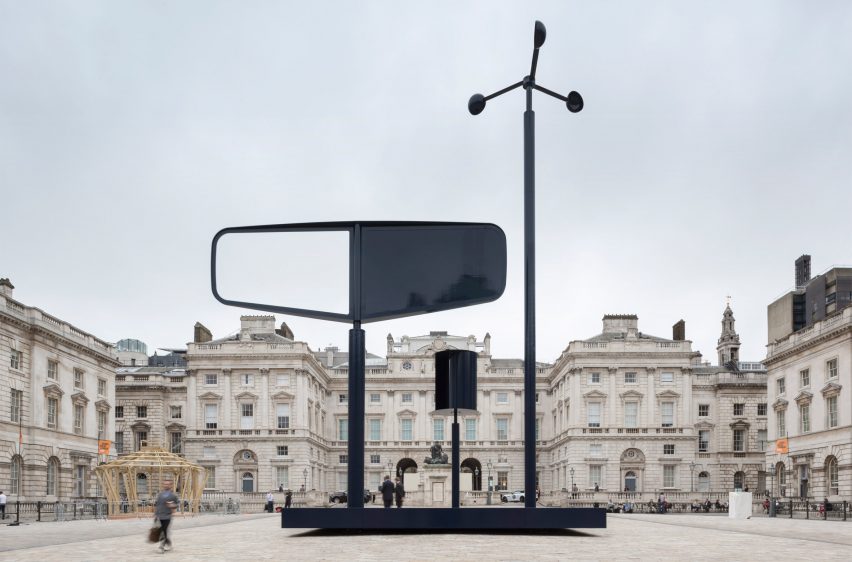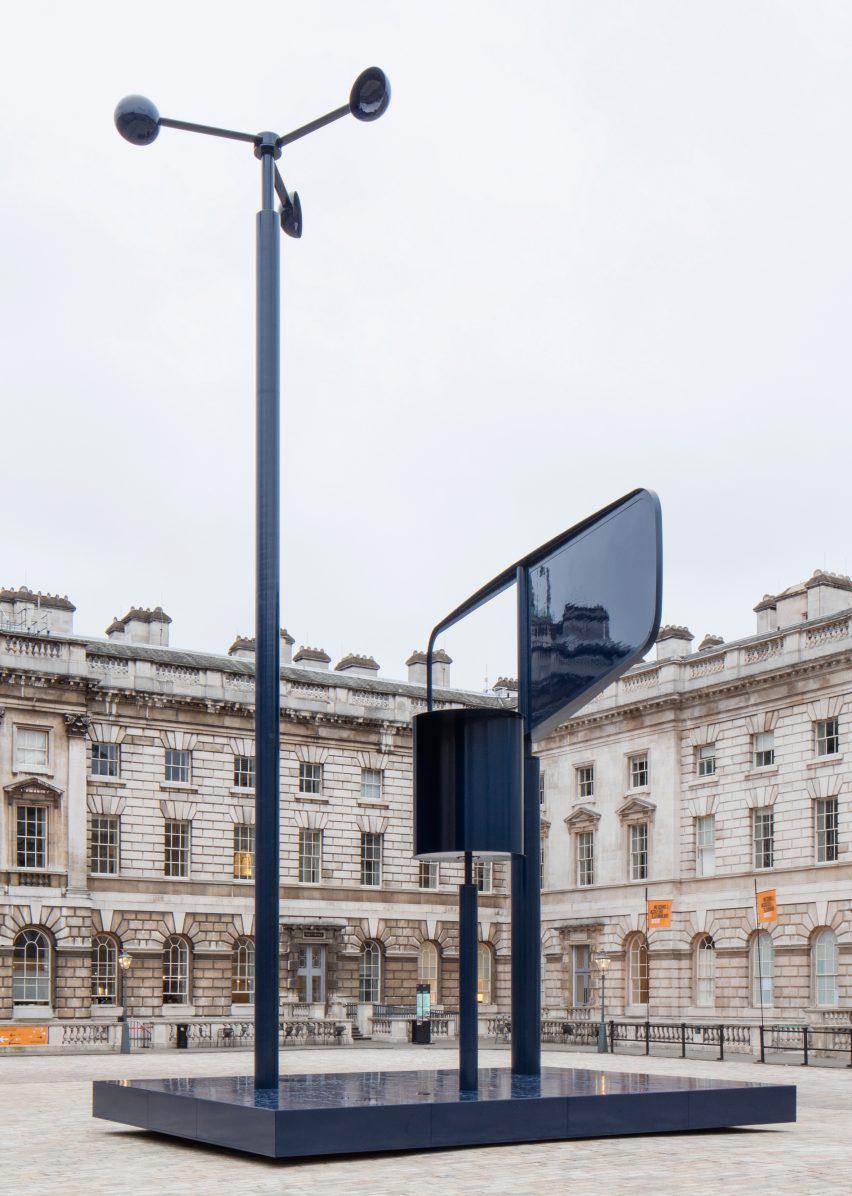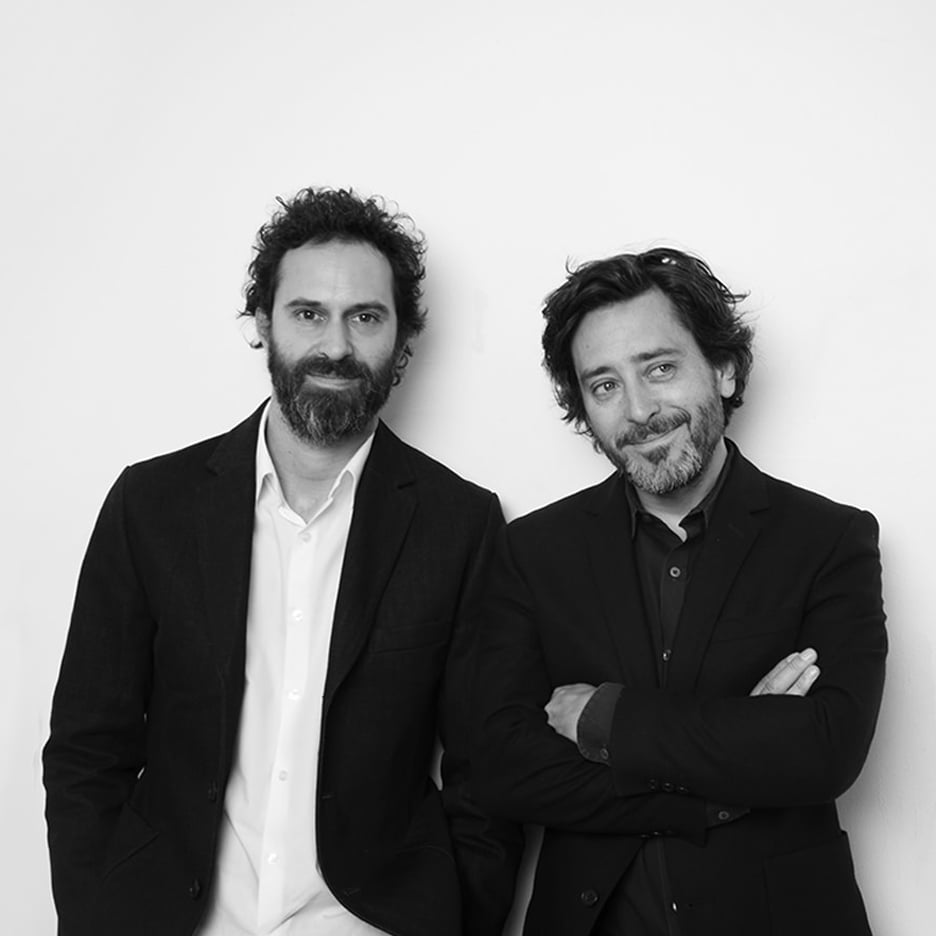UK government doesn't value design say Barber and Osgerby
London Design Biennale 2016: The UK government is not doing enough to support the design industry, according to Barber and Osgerby, who claim their London Design Biennale pavilion is one of the few not to receive public funding.
Jay Osgerby and Edward Barber, co-founders of the eponymous design studio, said that the government's lack of funding for design and creative education was taking the UK back to the Thatcher era.
"It is strange that design contributes so enormously to the GDP of this country, in all its different forms, and yet somehow it isn't valued in the same way that other countries seem to value design," Barber told Dezeen.
"I feel like we've gone back in time to the Thatcher years of thinking of creativity as a slightly bourgeois, superfluous activity without really realising how critical it is to our economy, as well as our sense of identity," added Osgerby.
The London-based design duo spoke to Dezeen at the launch of Forecast, the towering weathervane they have contributed to the Biennale to help Londoners find their way "at a time of national turbulence".

According to the designers, most of the 37 national pavilions and installations at the inaugural London design event were funded by public arts bodies, foreign ministries or other government organisations from their respective countries.
But Barber and Osgerby said that they had to hunt for private sponsorship.
"A lot of the countries that are represented here were funded at least in part by their governments, because their governments felt it was very important that they were represented in this event," said Barber. "In the UK that didn't happen."
"We had to find private funding, which – thankfully – we found through British Land," he added. "Maybe that's just the way that Britain works – you always have to find alternative ways and means to achieve things."
British Land, a property development and investment company, is also one of the major sponsors of the overall Biennale. The Biennale is being funded through a combination of private sponsorship, participation fees and ticket sales.

The UK's creative industries – of which design is a part – are expanding at nearly triple the rate of the wider economy, and are worth more than £84 billion a year according to statistics released by the government earlier this year.
But a number of designers have criticised the UK government's lack of investment in the sector, particularly when it comes to the "very weak" education system.
"One of the frustrating things is the removal of funding from the arts and the art school system and the removal of foundation courses," said Osgerby.
Barber and Osgerby have previously warned that London's status as leading creative city is under threat thanks to rent rises, arts education funding cuts and a government that is "scared by creativity."

The London Design Biennale runs from 7 to 27 September 2016 at Somerset House. Barber and Osgerby's Forecast sits in the middle of the building's courtyard.
The installation is inspired by traditional weather instruments and contains three elements – a weathervane, an anemometer that measures wind speed, and a turbine that harnesses the power from gusts of air.
Barber and Osgerby hope that it provides the British public with a place to reflect on "where we are now and where we are going as a nation".
Other installations at the event include Australia's recycled ocean plastic table and Turkey's pneumatic messaging system.